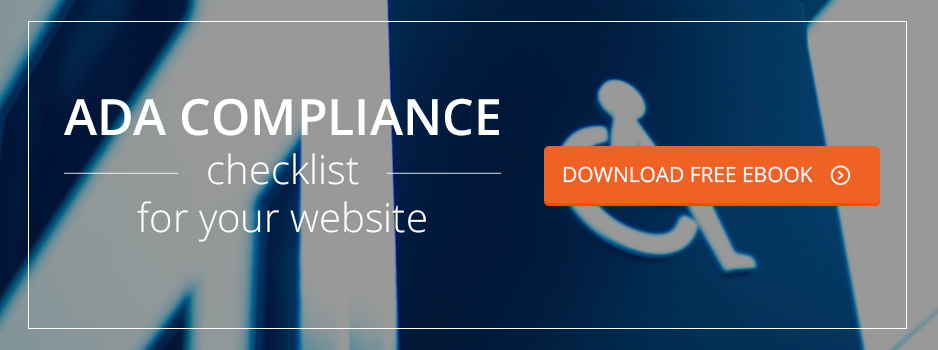Recently, law firms have been sending out letters to business owners in all different industries and different states, citing an identification of access barriers from experts. These letters titled, “For Settlement Purposes Only,” may be misleading and cause unnecessary alarm. While there is a high likelihood that your website is not ADA compliant, there is also a good chance that you are not in trouble for it yet.
The letter going around strongly recommends that business owners contact the firm directly as a first step before seeking any outside experts. It is clearly stated that contacting them will be “far more cost-effective with a pragmatic approach”. In the “Draft Settlement Agreement” portion of the letter, it presents the agreement of paying certain attorney’s fees and expenses to handle the situation and avoid penalty. This letter is aimed at complying with Title III of the Americans with Disabilities act, which targets businesses and private sector organizations.
Title III of the Americans with Disabilities Act, issued in 2010 requires that businesses and non-profit agencies make accommodations for the disabled public to access the same services as non-disabled clients. Newer Department of Justice moves have been to enforce the requirement of compliance to ADA Title III guidelines for all "public accommodations...places of public accommodation and commercial facilities" to include websites. The law will be applied to businesses with more than 15 employees.
If you receive this letter don’t panic and follow these steps:
1. Start with a little investigating of your own.
Search the Internet to find out what you can about the law firm in question. Maybe you will find out that many letters have been sent out offering to resolve the alleged ADA non-compliance claims. Or perhaps you will see if lawsuits have already been filed and against whom. It is important to seek out the credibility of the firm and who their experts are.
2. Next research your industry.
Check if other businesses similar to yours have received the same letter, from the same law firm. If you find that large quantities of letters were sent out in your initial search there is a chance that many businesses in your industry have received the letter as well. There could be an opportunity for a class action suit which can be beneficial for the parties involved in your industry.
3. Consider the claims that are being made against you.
Seek out professionals like outside legal counsel and a digital agency to further drill down into the alleged violations to deem if they are true violations. Be sure you have a firm understanding of the items that are highlighted so that you can make a decision as to how you will go about updating them or not.
4. Give your insurance company a heads up.
Find out if you are eligible for coverage for the potential lawsuit at hand. It will depend on what type of coverage you have selected for your policy and the type of allegations you are facing. Notifying your insurance company right away will safeguard your rights under the policy.
5. Be fully aware of what your rights are.
If a lawsuit should ensue with an individual or an entity, you are entitled to attain legal representation which can be your channel of communication. You do not have to communicate directly with the plaintiff and you certainly are not obligated to hire a law firm that accuses you of wrongdoing.
In November 2015, the US Department of Justice gave its update about pending regulations regarding the accessibility of websites. The DOJ said that enforcement would be delayed until 2018 for private sector websites. While the DOJ is delaying its regulation, the ADA title III already requires websites and mobile apps to comply with its guidelines.
Hopefully, this information can help to put your mind at ease if you have received a letter. Regardless, it is a good idea to begin to audit your website and mobile apps for ADA compliance. Because even if you are not facing litigation, you could be missing out on qualified leads that can benefit from your products or services.



